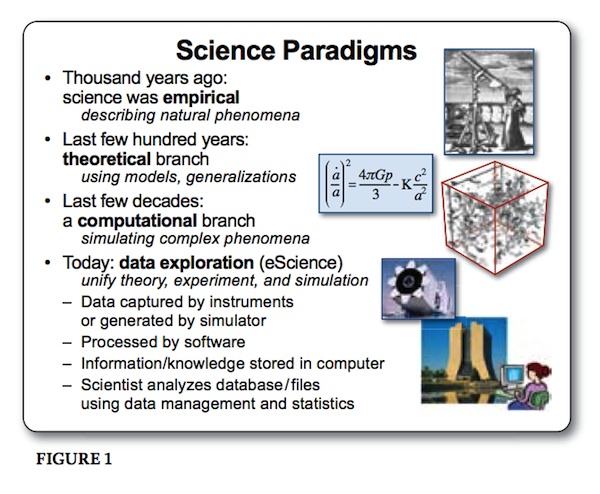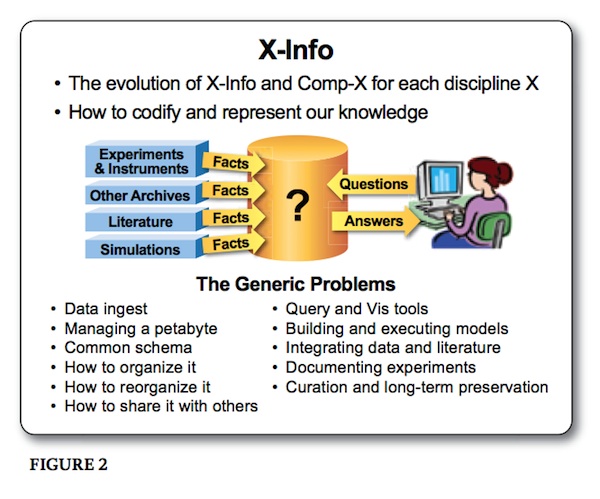This morning I was reading a transcript of a talk the late Jim Gray gave a few years back on eScience: A Transformed Scientific Method, and I was struck by the parallels in our current transformation of marketing.
This terrific slide from Jim’s talk sums up the evolution of the paradigms of science:

Although the purpose of science has remained constant — just as the purpose of marketing is indifferent to the digital revolution that has engulfed it — the day-to-day work in pursuit of that goal has changed radically. Jim remarked:
People now do not actually look through telescopes. Instead, they are "looking" through large-scale, complex instruments which relay data to data centers, and only then do they look at the information on their computers.
The world of science has changed, and there is no question about this. The new model is for the data to be captured by instruments or generated by simulations before being processed by software and for the resulting information or knowledge to be stored in computers. Scientists only get to look at their data fairly late in this pipeline.
Sound eerily familiar?
Later in his talk, he notes that experimental budgets in major science projects are becoming 1/4 to 1/2 software. "Even in the ‘small data’ sciences, you see people collecting information and then having to put a lot more energy into the analysis of the information than they have done in getting the information in the first place."
The challenges this presents, in Jim’s list of "generic problems" (slide below), are nearly equivalent in science and marketing:

We are seeing the evolution of two branches of every discipline, as shown in the next slide [Figure 2]. If you look at ecology, there is now both computational ecology, which is to do with simulating ecologies, and eco-informatics, which is to do with collecting and analyzing ecological information. Similarly, there is bioinformatics, which collects and analyzes information from many different experiments, and there is computational biology, which simulates how biological systems work.
Marketing informatics and computational marketing, anyone?
Jim’s suggestion? A renewed focus on tools to make X-informatics and computational-X more efficient and effective. Or, in our world, the marketing technology landscape.



